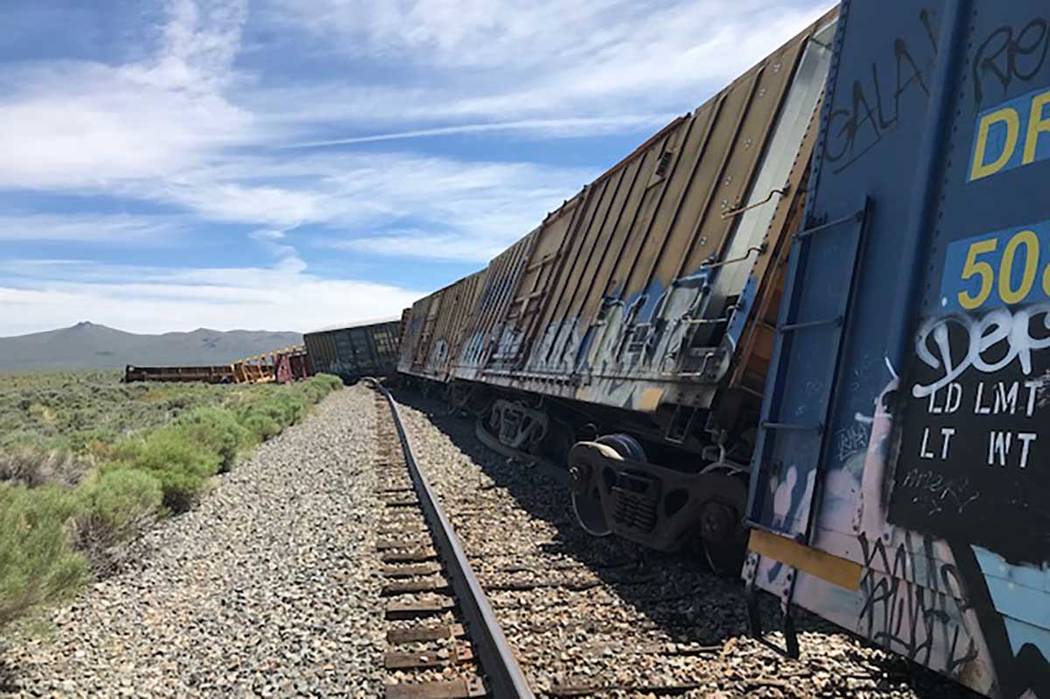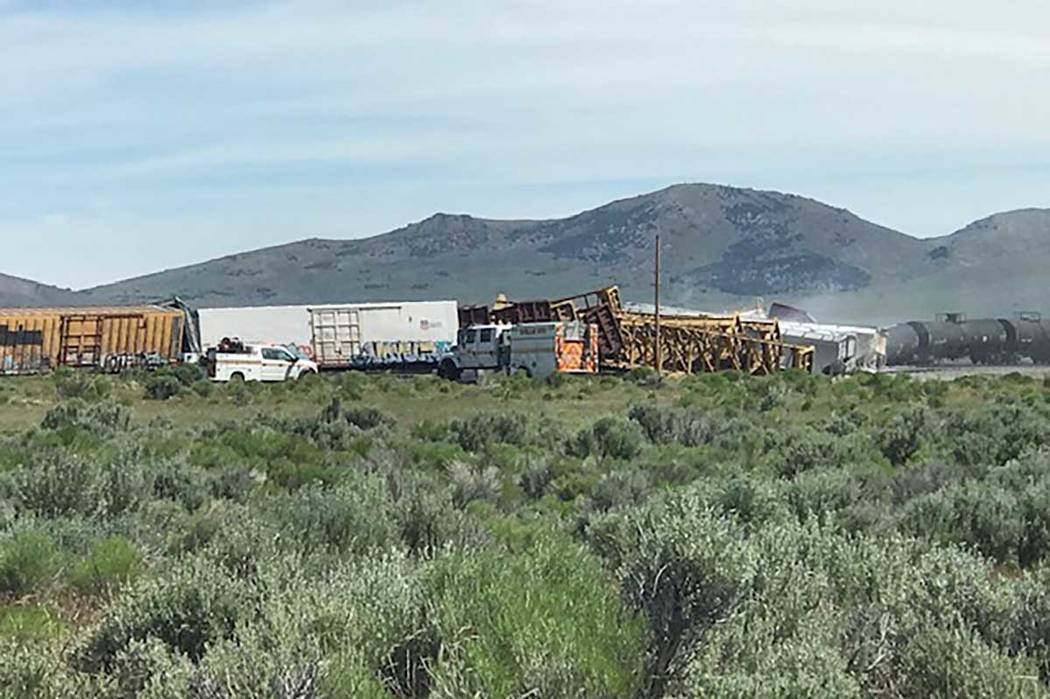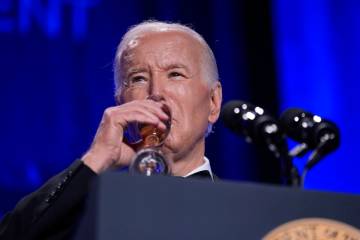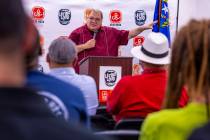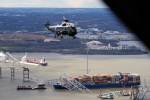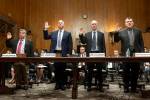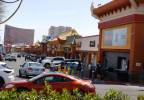Derailment stirs fears of bringing nuclear waste to Yucca Mountain
WASHINGTON — A federal investigation has been launched into the train derailment in Nevada on Wednesday, a routine probe but one expected to draw close attention in the state as a debate over nuclear waste transportation and storage at Yucca Mountain continues to roil Congress.
The Federal Railroad Administration, an agency of the Department of Transportation that enforces rail safety regulations, has launched an investigation into the derailment.
There were no fatalities or severe injuries in the derailment near Elko, and though the train was carrying military munitions headed for the Hawthorne Army Depot, those items were not on the 22 train cars that plunged off the tracks in a sagebrush stretch of railroad along Interstate 80.
Hawthorne is an ammunition storage depot run by a private contractor in western Nevada.
“None of the cars involved in the derailment were carrying explosives,” a spokesman for the railroad authority said.
For now, the National Transportation Safety Board is not investigating. “We try to focus on high-impact events,” said Peter Knudson, a spokesman for the agency. Those high-impact events would include a train derailment where “people are affected by toxic release,” Knudson said.
A Union Pacific spokesman said no hazardous materials were involved in the derailment.
“There was ammunition on board the train, but none in the cars that derailed. The cause of the derailment is under investigation,” said Tim McMahan, a Union Pacific spokesman.
“When our preliminary investigation is completed we will follow standard procedure and turn the findings over to the Federal Railroad Administration,” McMahan said. “They will make a final determination and that can take up to a year.”
McMahan said both rail lines were back in operation Friday after the derailment.
Accident stirs up waste fears
The relatively routine federal investigation into the derailment comes against the political backdrop of a battle over nuclear waste storage in Southern Nevada at Yucca Mountain, about 90 miles northwest of Las Vegas.
A central objection leveled by Nevada against the Department of Energy’s application to build a repository at Yucca Mountain is dangers associated with bringing spent fuel rods and radioactive materials from power plants across the nation.
The Department of Energy prefers established rail routes for the transfer of materials, although no transportation plan has been officially proposed or finalized.
Nevada Gov. Steve Sisolak, a Democrat, said the day following the accident that the derailment was “another sobering reminder of the danger posed by shipping nuclear waste through Nevada communities.”
Rep. Dina Titus, D-Nev., has argued for years that shipping nuclear waste to Nevada would take it through major population centers across the country, including her central Las Vegas district and near the Strip. She said the accident near Elko “is just another example of why it would be so dangerous to transport tens of thousands of tons of nuclear waste to Nevada.”
As a ranking member, Titus has asked the House Transportation and Infrastructure Committee to monitor the Nevada derailment and reach out to federal agencies about their findings in subsequent events.
Congress is still wrestling with the 1987 decision to make Yucca Mountain the sole permanent repository to store nuclear waste. Three decades after that decision, Congress has failed to provide the funding to complete hearings on the Energy Department’s license.
The battle continues in this Congress, where the House has stripped all funding for licensing hearings and the Senate has yet to produce a spending bill of its own.
Differences in the House and Senate could tack another year onto the 30-year stalemate, which has left nuclear waste stockpiling at power plants and military sites in 39 states.
Shipping called safe
Advocates of nuclear waste storage in Nevada note that radioactive materials shipped to Nevada would be contained in casks made with multiple steel shells designed to withstand severe accidents. And a 2014 study by the Nuclear Regulatory Commission found that because of container design, “there is less than a 1 in a billion chance that radioactive material would be released in an accident.”
“Transportation of used nuclear fuel is one of the safest endeavors in the history of mankind, and I don’t say that lightly,” said Steve Nesbitt, director of nuclear policy and support for Duke Energy, in 2017.
Despite the insistence of safety of nuclear industry advocates, transportation of nuclear waste has been a political lightning rod in the debate over Yucca Mountain.
In Nevada, industry groups representing resorts, gaming and business interests, along with environmentalists and conservation advocates oppose transporting spent nuclear fuel through Las Vegas or along other routes to Yucca Mountain.
And the Government Accountability Office, the nonpartisan investigative arm of Congress, found concerns with the Department of Energy’s transportation plans for nuclear waste.
In an October 2015 report, the GAO wrote “the current transportation infrastructure, particularly for a mostly rail option of transportation — which is DOE’s preferred mode — may not be adequate without procuring new equipment and costly and time-consuming upgrades on the infrastructure.”
Contact Gary Martin at gmartin@reviewjournal.com or 202-662-7390. Follow @garymartindc on Twitter.



